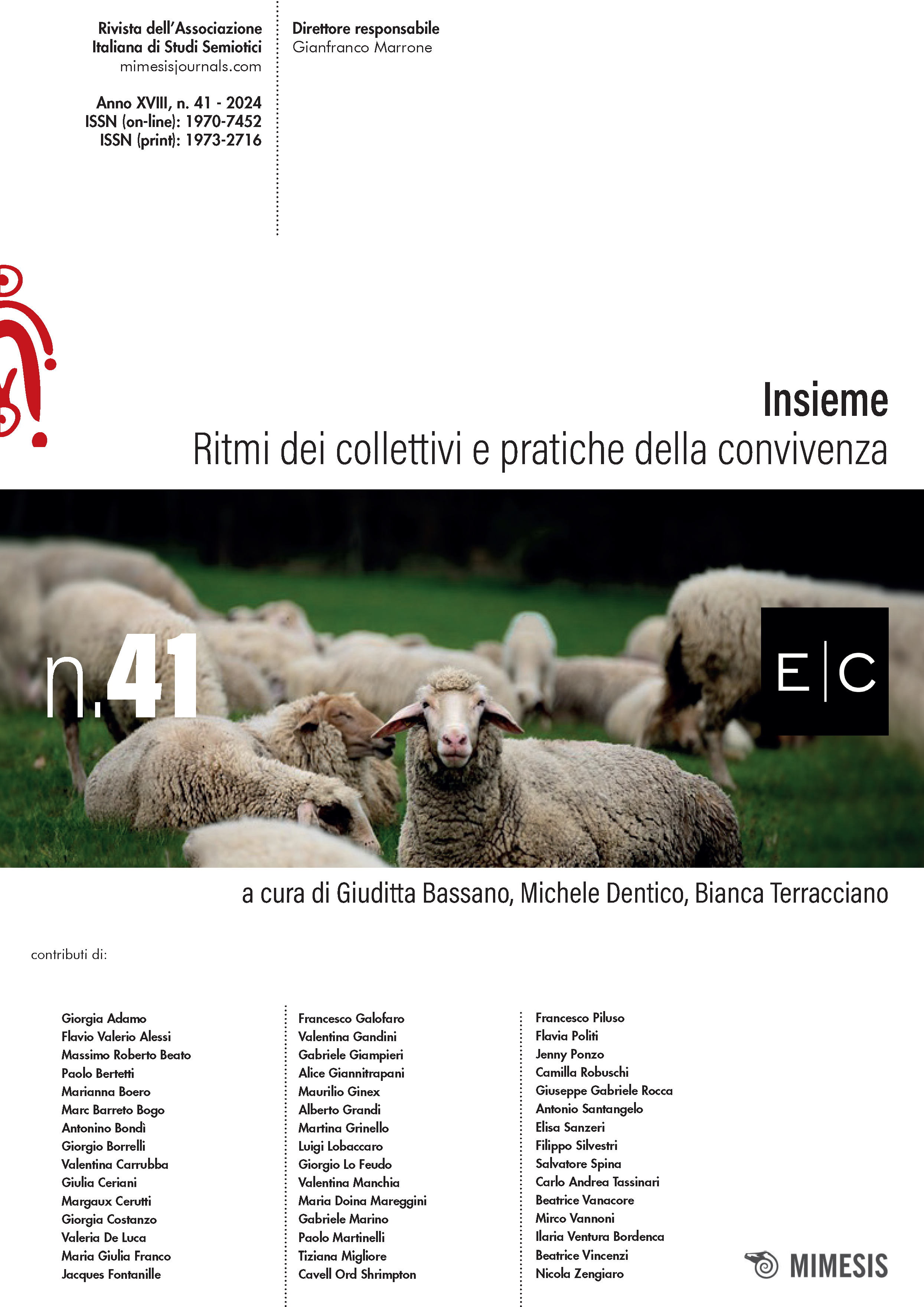Decolonial Culture between Passions, Rituals and Absolutions. An Investigation into the Cognitive Landscape of the Tropenmuseum
Abstract
Decolonial culture has a clear semiotic personality, whose identity is evident in the recurrence of themes, narrative tropes and semiotic operations. Analysing a section of the exhibition “Our Colonial Inheritance” on display at the Tropenmuseum in Amsterdam, key aspects of decolonial culture will be highlighted. With a semiotic gaze, I propose a reflection on decolonial culture in a morphogenetic, typological, topological and narrative sense, emphasising the heuristic value of thinking of the decolonial museum text as a “cognitive-passionate landscape”. Decolonial landscapes evoke the need to reorganise the structural coupling that binds us to our world-environment. These are landscapes of guilt, shame and responsibility in relation to situations of social marginalisation and exploitation, which, by pathemically modelling the visitor, offer him the possibility of ritual redemption from the guilt preliminarily denounced.



